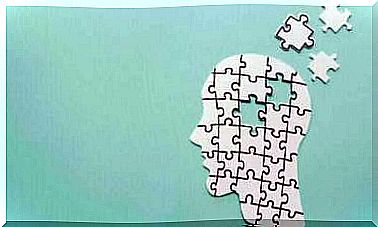Do You Suffer From Fatigue From Compassion?

Compassion is a quality that is beneficial to our personal relationships. In addition to putting us in another person’s shoes, it allows us to experience and understand their feelings. But too much compassion can cause us to suffer from a condition that psychologist Charles Figley defines as fatigue of compassion.
Fatigue of compassion can be dangerous and disabling if we do not handle it properly. If you are not able to detect fatigue from compassion in time, it can lead to used trauma or burnout.
Usually, fatigue of compassion affects professionals who work with patients or clients who are suffering, have some discomfort or are in great pain. In particular, it affects psychologists, social workers, doctors or nurses who take care of patients on a regular basis. Compassion and empathy are important skills that go hand in hand with the work of a health professional. But without the right tools, a by-product of compassion can end up being a serious problem.

Other people’s emotional pain
Although fatigue of compassion affects people who are in health care even more often, it can also affect those who do not have a risky profession. It happens when someone is too empathetic and cares about other people’s emotional pain.
Yet there is a difference between understanding a person’s pain and feeling it. The latter happens to people who are too empathetic. It is almost as if the pain of others becomes their own. As a consequence, too much exposure to these people can lead to exhaustion.
Some of the symptoms of fatigue of compassion are emotional exhaustion and feeling lonely, confused and encouraged to suppress or shut in emotions.
Fortunately, as we have pointed out, there are certain tools that allow us to treat this condition and prevent it. Being aware of them is helpful for several reasons. First, it helps us to avoid being caught up in the emotions of others. Secondly, it allows us to keep a psychological distance to protect our well-being and regulate our mood.

Tools for fatigue of compassion
Furthermore, we will look at some of the tools we can use to combat fatigue of compassion. These are especially useful if we have a job that requires us to be in touch with people who need help. It can also help if we are very empathetic and it causes intrusive thoughts, energy loss, increased anxiety, somatization of negative emotions or apathy.
- Interacting with friends: It helps alleviate emotional burdens. Exchanging opinions with friends can help us face our problems.
- Family support: Talking to our family is a way to get out and withdraw from certain work-related or personal problems.
- Leisure activities: Sports or hobbies, such as gardening, give us time for ourselves.
- Psychological therapy: It is important to use these tools, consult a specialist and do therapeutic exercises that can help treat fatigue of compassion.
Other tools are knowing how to disconnect and being informed and trained to be able to deal with the fatigue that comes from being empathetic. Now it is important to mention that we should not stop being compassionate. Rather, these tools should serve as strategies to protect our well-being.

Last thoughts
Fatigue of compassion can make us feel guilty. In particular, we are so mentally tired that we think we have lost our ability to feel empathy. However, this is only the result of being empathetic without knowing how to adequately regulate and protect ourselves.
We hope that the tools we have mentioned can help you deal with fatigue of compassion and face other problems you may experience. After all, every single one of them is a recommendation that we should use more often. That way, you start to feel better.
In any case, if you think you are suffering from fatigue of compassion, do not hesitate to ask for professional help. A psychologist can help you find out what works for you and will follow you through the process. Thus, you will be able to continue to be an empathetic person, but have the necessary tools to protect your well-being.









